Federal Budget 2023: Safety, security in Alice Springs, NT focal point in surplus budget
After a tumultuous few months in the NT, safety and security are key target areas in Tuesday’s budget, with millions in funding for alcohol-harm services and policing.
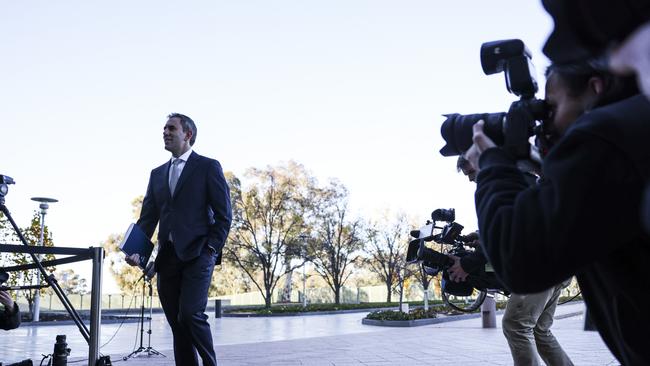
News
Don't miss out on the headlines from News. Followed categories will be added to My News.
More “boots on the ground” and liquor inspectors have been pledged for the Northern Territory’s remote townships in a federal budget that has security and safety in mind after a tumultuous few months.
In Tuesday’s federal budget, Treasurer Jim Chalmers revealed $250m in spending for “extra high-visibility police and law enforcement operations”, security infrastructure, as well as programs to address alcohol usage and harm, aimed squarely at safety and economic opportunity in Central Australia.
Dr Chalmers’ second budget was modest in new spending – despite what economists have described as a ‘flash’ surplus on the back of higher iron ore and coal export delivering a $4.2bn surplus for 2022-23.
However, there’s significant funding announcements across the NT, aimed at improving its hospitals and national parks, as well as increasing and bettering its police force.
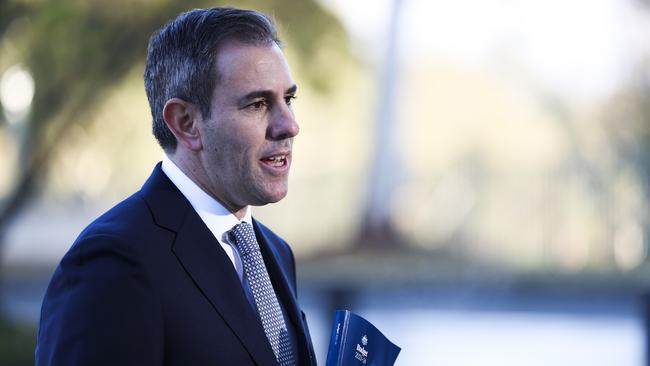
$250M TO MAKE THE TERRITORY BETTER, SAFER
Security and safety measures were revealed under a $250m ‘Better, Safer Future for Central Australia’ fund, to tackle alcohol abuse, improve safety and provide better youth opportunities.
As part of the investment, the government revealed $155.9m over five years from 2023-24, with the funding splintering off across different areas.
There’ll be $40.4m over the next two years to improve school attendance and education in Central Australia, partnering with local organisations to drive community engagement.
A further $10m from the funding will be for justice initiatives to reduce crime and contact with the criminal justice system, spread out over four years.

Starting from this year, and continuing over the next three, $49.2m will focus on early intervention and community safety projects, while there’ll be about $300,000 this year to connect Alice Springs town camps to better internet.
The remaining $94.1m from the $250m fund will be held in the contingency reserve, pending further planned initiatives.
It builds on the initial $48.8m package announced by Prime Minister Anthony Albanese in January.
Part of that funding will translate to “more boots on the ground”, an Attorney-General department spokeswoman confirmed, with $14.2m to be spent on recruiting over 50 new law and order personnel.
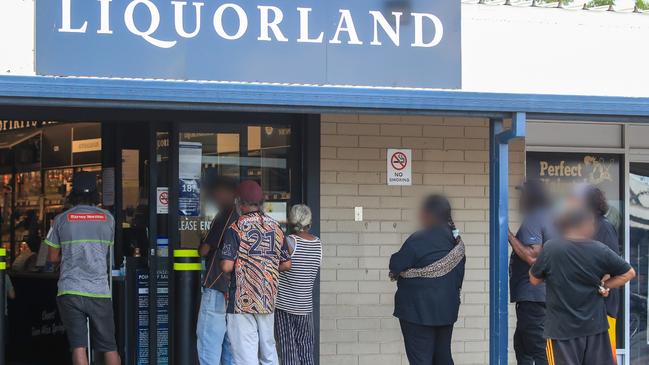
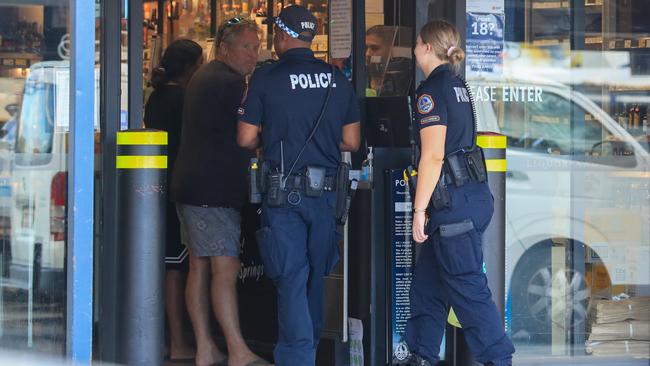
The funding will mean an extra 30 police officers will be recruited and deployed across NT’s south, 21 ‘PALI’ officers – known as police auxiliary liquor inspectors – about 10 liquor inspector and compliance officers, and 10 new security guards, who deployed solely in Alice Springs.
There’s more information on the funding breakdown, which includes $2m in new CCTV and lighting across Alice Springs, $5.6m for more emergency accommodation, and $2m over the next two years for domestic violence services through the Tangentyere Council.
Alongside the funding from the Better, Safer Future program, millions will be spent on reducing alcohol-harm across the NT.
From the government’s $2.2bn package this year to support community services across Australia’s states and territories, the NT will see $6.1m this year to work with the Territory’s government to tackle alcohol-harm.
A Treasury spokesman confirmed the funding would be used in conjunction with the territory’s government and peak Indigenous bodies to devise community alcohol management plans.
MILLIONS PLEDGED FOR OUR NATIONAL PARKS
National parks will also receive a major cash boost.
The government will provide $355.1m over next four years to protect commonwealth national parks and marine reserves, and deliver infrastructure funding for the Muṯitjulu community, home to the Traditional Owners of Uluṟu‐Kata Tjuṯa National Park.
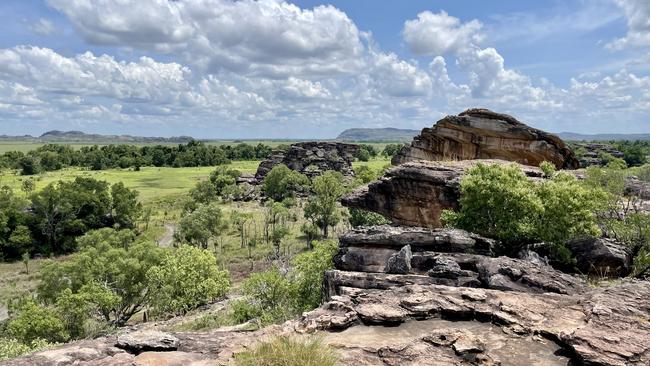
This includes $127.8m over four years for conservation, research and threatened species, and $27.6m over the same period to address housing issues in the Booderee, Kakadu and Uluṟu‐Kata Tjuṯa national parks.

There’ll also be $25.9m over four years to improve tourist infrastructure at Kakadu, and $92.8m over the same period to provide water, sewerage and electrical services for the Muṯitjulu community.
The government has also revealed a $400,000 for a partnership between the National Parks Director and the Northern Territory government to support its marine parks.
CASH SPLASH REVEALED FOR ROYAL DARWIN HOSPITAL
There’re wins for the Territory’s health sector, especially for the RDH.
The NT’s hospitals will receive $385.5m in 2023-24, with the remainder going towards public health and the ongoing Covid response.
The federal government has announced $17.7m for RDH.
The funding will go towards the hospital’s National Critical Care and Trauma Response Centre, ensuring it’s in “a state of readiness to respond to major incidents”, a Health Department spokesman confirmed.
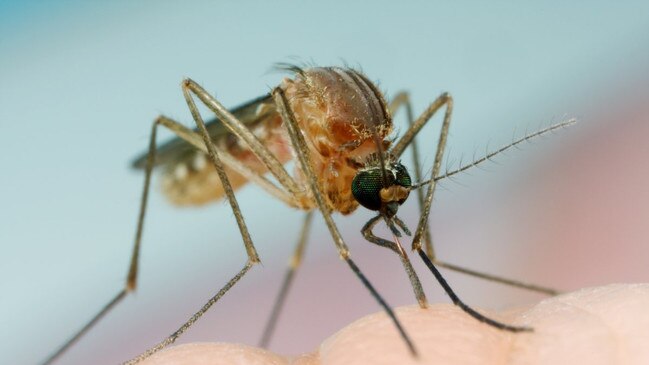
The government also announced $7.4m for NT’s kids, with funding going towards oral and hearing services across the region’s remote communities.
This follows an announcement of $1.4m over the next three years to tackle what a Health Department spokesman described as “harmful sexual behaviours” among the Territory’s youth.
$4.2m across the next three years will be spent on recruiting more doctors to diagnose and treat harmful sexual behaviours.
Mozzys are also set to feel the brunt of the federal government’s health-kick, with $400,000 this year announced for mosquito control in Tennant Creek.
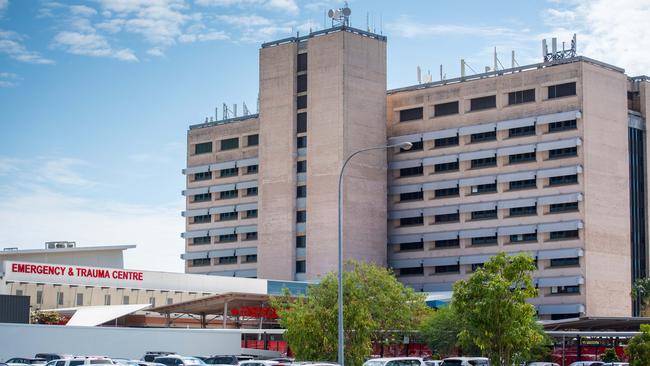
The funding would be used to support the surveillance, control and elimination of the Aedes Aegypti mosquito, a known Dengue transmitter in Tennant Creek.
A portion of the funding will also support efforts to increase awareness and promote best practice among at-risk communities.
FUND TO IMPROVE SCHOOL READINESS
Education in the NT is another to receive significant funding, with two big announcements for the Territory.
As part of the Northern Territory Remote Aboriginal Investment, the budget revealed $29.3m in improving education across the region.
The amount will go towards improve school readiness, opening pathways for secondary-school students to both employment and further education, and teacher housing in remote schools.

An Education Department spokeswoman said the investment plan “supports the Northern Territory to improve schooling for First Nations children, make communities safer and healthier”.
There’ll also be $30m this year, with a further $10 million in 2024-25, for 46 NT schools to implement “local solutions to increase enrolment and improve learning outcomes”, she said, while confirming Larapinta Primary and Yipirinya School, both Alice Springs, and Finke School were just three of the schools set to receive funding.
BUDGET CONFIRMS $100M FOR CRITICAL HOUSING
In NT’s Homelands there’s a total of $100m to support critical housing and infrastructure – $75m this year compliments $25m announced in last year.
However, the larger funding will be aimed at improving housing across remote NT, with $111.7m announced to address overcrowding, homelessness and poor housing conditions across remote towns.
There’ll also be a new purpose-built boarding facility in Tennant Creek thanks to a $5.6m package.
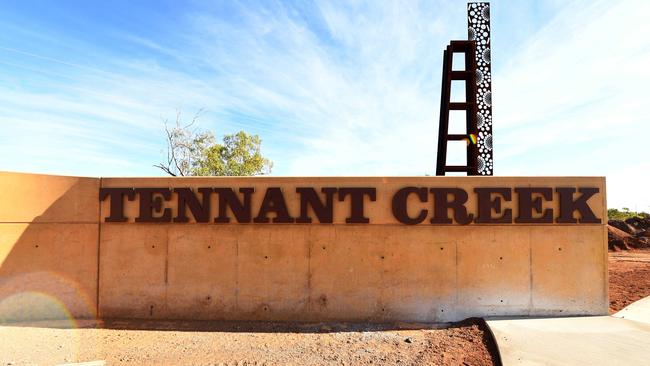
The federal government will also look to ‘close the gap’.
Federal Indigenous Affairs Minister Linda Burney said the government’s overarching focus was on housing, health and employment.
“The strategic priorities for Closing the Gap over the next 12 to 18 months, committing $424 million of additional spending.
“This whole-of-government investment will fund improvements to clean drinking water, remote housing and food security for First Nations people living in remote Australia,” Ms Burney said.
Dr Chalmers’ announcement for Indigenous housing support follows an acute accommodation shortage in remote Northern Australia.
The commitment of $111.7m has been announced as a one-year partnership for the 2023-24 financial year primarily focused on accelerating building activity so as to reduce overcrowding in remote housing.
Total government spending on initiatives for indigenous communities are forecast to reach $1.9bn over the forward estimates
LONG-PROMISED ROAD, RAIL PROJECT COULD FACE THE BUDGET AXE
The federal government is set to conduct an independent review of hundreds of infrastructure projects across the country – which could result in long-promised roads and rail commitments being cut.
Tuesday’s federal budget revealed a vast majority of the 800 Infrastructure Investment Program projects, which were either yet to start construction or were not Labor election commitments, would be subject to an independent audit to determine their viability.
An Infrastructure Department spokeswoman was unable to confirm the projects in the $120bn fund that would be subject to the review, instead telling NewsCorp that Infrastructure Minister Kirsty McBain would speak with her state and territory counterparts before confirming projects facing the independent audit.
Budget documents confirmed that, despite the review, a massive $55.4bn in taxpayer funds had been allocated to the Infrastructure Investment Program.
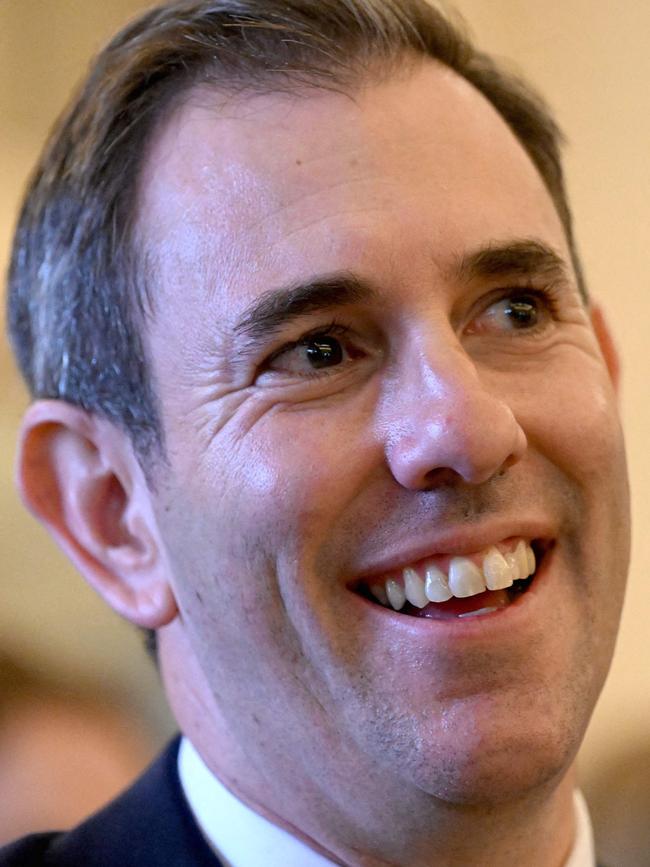

The program is made up by black spot projects, the Bridges Renewal Program, Developing Northern Australia program, as well as the roads and rail investment schemes and the Roads to Recovery fund.
“The government will continue to improve the sustainability of the Infrastructure Investment Program and focus on delivering nationally significant land transport infrastructure projects that support long-term productivity and economic growth,” the Treasurer said.
“In recent years, the Infrastructure Investment Program has drifted away from a focus on projects of national significance, and market capacity challenges and cost pressures have increased.
“An independent strategic review will ensure the government’s $120 billion pipeline over ten years is fit for purpose and the government’s investment is focused on projects which improve long-term productivity, supply chains and economic growth in our cities and regions.”
The budget confirmed the federal government would “work with states, territories and local governments to prioritise the delivery of projects currently under construction and election commitments”.
“The maintenance of supply chains is important for economic resilience and connectivity. The government will provide a further $200 million for the development of major project business cases,” Dr Chalmers said in budget papers. ”A further $13.5 million will be provided to improve aviation safety and fund critical upgrades to remote airstrips, to ensure continued access to essential health care, employment and educational opportunities for remote communities.”


